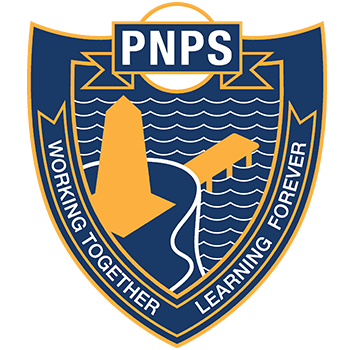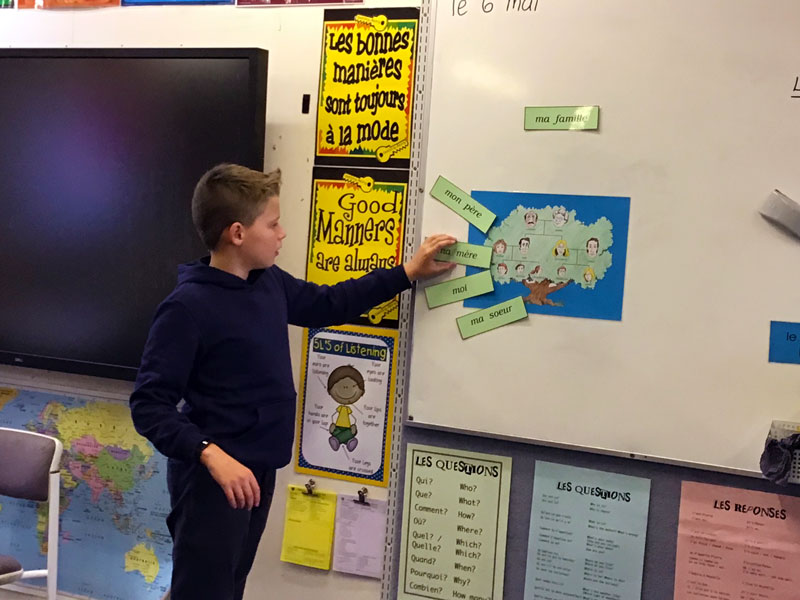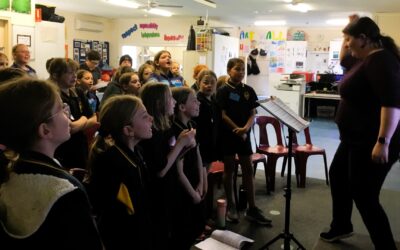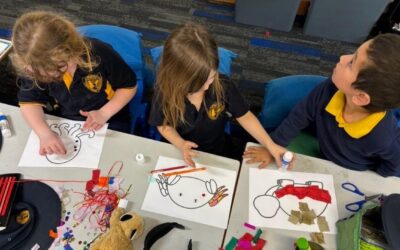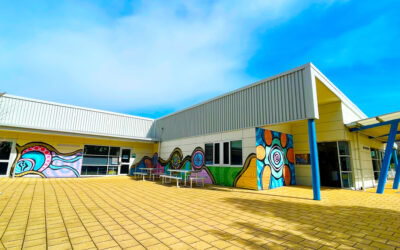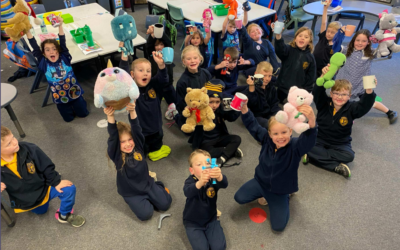This has been a very important time for families to work together, spend time together, play together and learn together.
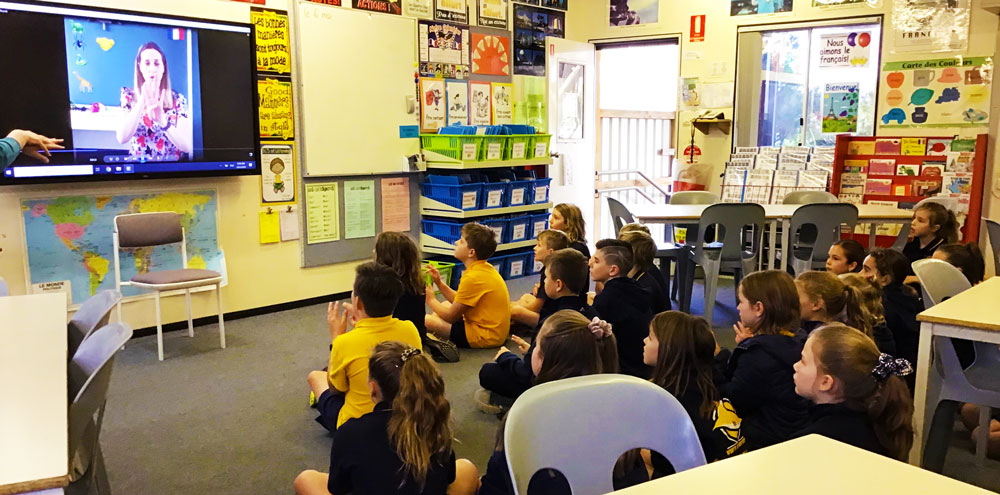
Post by Karen Thorburn, Teacher of French
Many students have been telling me how they have taught their parents the French handwashing song we learnt before the holidays (this was also shared on Class Dojo). Some have told me about downloading the Duo Linguo app and practising some basic French for 5, 10 or 15 minutes a day during the holidays, even competing with family members to reach the next level. Some have told me about watching “Bluey” and “Peppa Pig” in French or teaching their pre-school brothers and sisters how to sing “Jean Petit qui danse”.
This term we are using the opportunity to learn how to describe our families in French, starting with the basic words for those who live in our house and then our extended families. Some of these words are the same or very similar to English words – e.g. parent, grandparent, cousin, famille, oncle, tante – but of course will be pronounced differently because the French sound system is different. The younger students were introduced to the vocabulary via a story and song, while the older students read some information about a very familiar TV family “The Simpsons”. All students thought it was pretty funny that the French word for father is père, until I explained that the French word for the fruit that we eat is a poire and not a pear.
The older students have also been looking at the structure of a family tree and how we all fit together. One of the students told me “This is like history Madame!”. My response “Isn’t it great that all of our subjects have connections”. Our families are all rich in history. It has been interesting to note the number of students whose grandparents obviously speak another language or have links to another culture. While in English we have Nana, Grandma, Nanny, and Grandpa, Gramps, and Poppy, some students call their grandparents Oma and Opa (German and Dutch), Ouma and Oupa (Afrikaans), Nonna and Nonno (Italian), Mormor and Farfar (Norwegian), Babcia and Dziadek (Polish) or Avó and Avô (Portuguese). In French we have Grandmaman or Mémé and Grandpapa or Pépé.
We will be creating sentences to describe our families, explaining the names of each member, the number of brothers and sisters we have and also practise our French numbers to say how old they are. A list of all vocabulary and pronunciation was posted with the Home Learning packages on the first day of school via Class Dojo or Google Classroom so that those learning at home could engage in the learning happening at school.
Due to current restrictions on large groups gathering together, our French Fun Day will not be held on Friday 5 June. We are currently trying to find a suitable date in Term 3 and will let families know the new date as soon as possible. As with all special activities, we need to follow advice provided by our medical experts.
